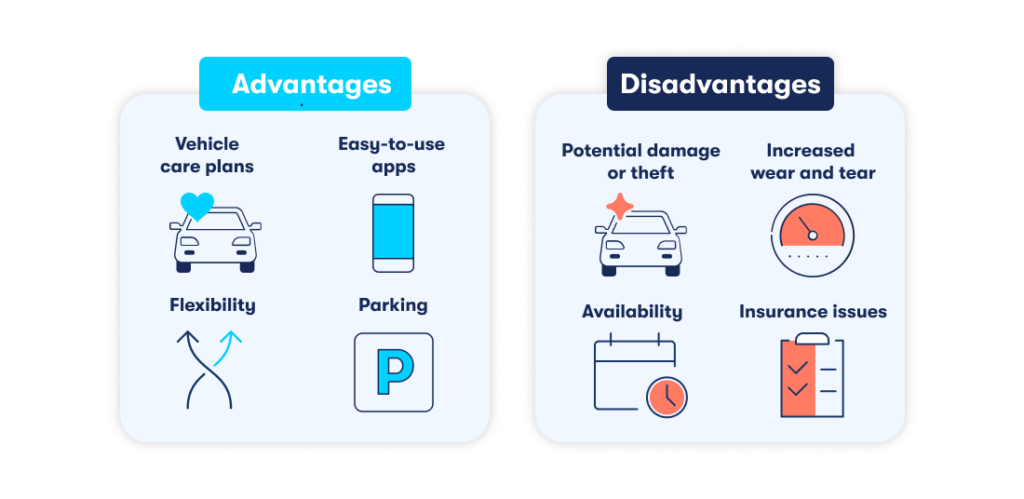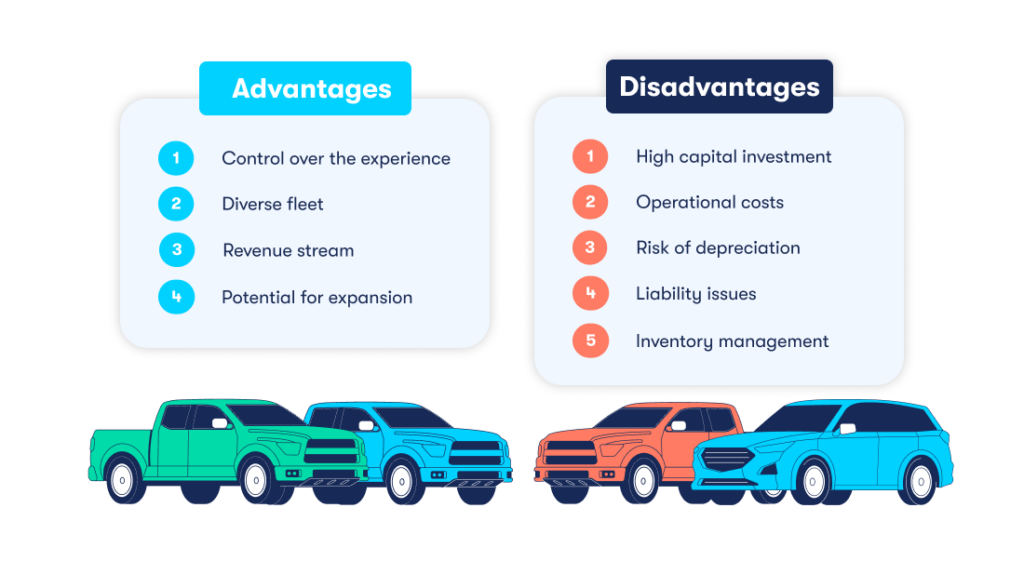

December 26, 2023
Peer-to-peer vs. fleet car sharing
There’s no shortage of options for those who are interested in earning additional income by renting out one or more of their cars. Much of that is thanks to the rise of peer-to-peer (P2P) car sharing, which has disrupted the industry by providing a low barrier to entry for individuals who want to make extra money from an underutilized asset. But there are fundamental differences between using an extra car for car sharing and building a business out of a fleet of vehicles. Let’s walk through the basics of peer-to-peer and fleet car sharing and how they differ.
What is peer-to-peer car sharing?
Peer-to-peer car sharing is when individuals rent their vehicles to other drivers to earn money. This is typically facilitated through a third-party P2P service, such as Avail, Turo or Getaround. People who rent the cars may be referred to as borrowers or guests, while those renting out their vehicles are typically called owners or hosts, depending on the service being used.

Advantages of peer-to-peer car sharing
Peer-to-peer car sharing has plenty to offer to car owners, with the most obvious benefit being the ability to easily earn extra income. Since money is often the main attraction, other worthwhile P2P perks don’t get the attention they deserve. These include:
- Vehicle care plans: You may have access to free or discounted maintenance and cleaning, depending on which platform you use.
- Easy-to-use apps: Rentals are usually managed through a proprietary car sharing app, which allows you to easily list your car and track your earnings at any time.
- Flexibility: Choose when and how often to share your vehicle. If you don’t need it for a week or while on vacation, you can passively earn money.
- Parking: Some platforms have owners park in reserved spaces for free during the listing period. This is especially beneficial for those renting out a car in Chicago or another large city, where parking is often at a premium and expensive.
- Environmental concerns: Sharing cars can reduce the number of purchased vehicles sitting idle.
Benefits vary widely among P2P car sharing companies, so for example, don’t assume that all of them will share maintenance costs just because one does. Gather as much information as you can during your research to uncover all the advantages and make accurate comparisons.
Disadvantages of peer-to-peer car sharing
Your personal car is an expensive asset, so the potential drawbacks of letting someone else drive it will feel quite serious. This is where going through a P2P car sharing service can be an advantage over starting your own fleet business. These companies will assume greater responsibility and offer solutions to help you work through these issues, whereas your business would need to be prepared to deal with any consequences alone. Here are some of the most common disadvantages to be aware of:
- Potential damage or theft: Scratches, dents and maintenance issues can occur if a borrower mishandles your car. There is also the potential of theft. A P2P car sharing service should have documentation of the steps they take should one of these issues occur, including what the owner’s responsibilities are, if any.
- Increased wear and tear: Regularly renting out your car can lead to increased wear and tear, which might add to your maintenance costs over time.
- Availability: You may not be able to regain access to your car if you need it in an emergency.
- Insurance issues: While many car sharing platforms offer insurance protection, you may have potential gaps in the event of an accident. Your personal auto insurance policy may not cover peer-to-peer car sharing either.
As noted, P2P car sharing companies take steps to mitigate the effects of known issues, so they may not have as strong of an impact as you’d think. Still, it’s important to be aware of the downsides so you can also take any necessary precautions.
What is fleet car sharing?
Traditional car rental businesses operate on a fleet-based model. With fleet sharing, a company (or individual) purchases multiple vehicles for the purpose of renting them out to other drivers. Fleet sharing typically does not operate on a P2P car sharing platform, although it is possible to build a fleet-style business on a car sharing platform simply by listing multiple cars through the same service.

Advantages of fleet car sharing
Why would car owners want to create their own fleet rental business? Usually, it’s to maximize control and build an independent company. The benefits include:
- Control over the experience: Owning the fleet and operating the business mean you have full control over every customer touchpoint and can provide an experience that reflects your brand.
- Diverse fleet: You can offer a variety of vehicles to cater to different customer needs, such as compact cars for city use, SUVs for families and luxury cars for special occasions.
- Revenue stream: As the owner, you receive all the profits directly, without having to pay fees or commissions to third parties.
- Potential for expansion: If successful, you can gradually add more cars to your fleet, expanding your service area and customer base.
You may be thinking that you can still have a diverse fleet and the potential for expansion if you rent out multiple cars through a P2P car sharing service, but keep in mind that you’ll still need to meet their vehicle eligibility criteria. Running your own fleet business gives you more freedom in making these kinds of decisions, which is an advantage over going through a third-party service.
Disadvantages of fleet car sharing
Acting as a fleet car company has its downsides, too. Unless you hire staff, you’ll be handling everything yourself. That means considering the following:
- High capital investment: Purchasing a fleet of vehicles requires a significant initial financial investment, which can be a barrier to entry.
- Operational costs: The ongoing costs of maintaining, insuring and servicing a fleet can be high.
- Risk of depreciation: Cars depreciate over time, which can impact the value of your assets and profitability.
- Liability issues: As the owner of the fleet, you may bear more liability for accidents, damages or theft.
- Inventory management: Managing a large fleet can be complex and time-consuming, requiring efficient systems for scheduling, maintenance and cleaning.
Beyond vehicle logistics and maintenance, you must also keep in mind the other aspects of running and scaling a business to ensure you have the capital and resources to be successful. This includes marketing and advertising, hiring and salary management, tax preparation and legal council, among other considerations.
Making the decision between peer-to-peer and fleet car sharing
As you weigh the pros and cons of these two car sharing options, consider starting with peer-to-peer and reassessing your decision every so often. Relying on a third party to do a majority of the work is an excellent way to learn more about this business model without making a large upfront investment of money or time. While you may lose some control over aspects like pricing and marketing, the benefits that these companies offer more than make up for it.
As more drivers rent from local car owners rather than large corporations, P2P car sharing services like Avail are making it easier than ever to start sharing your car. In addition to perks like insurance protection from Allstate, Avail manages the key exchange and all borrower communications, so you don’t have to worry about awkward meetups or getting paid on time. And when it comes to payments, Avail is unique in offering guaranteed payouts of at least $50 each week your car is shared. That means you’ll always make money when you share through Avail, even if a borrower doesn’t book your car the whole time it’s listed.
Download the Avail app or sign up online today to learn more about how car sharing with Avail works.
Frequently asked questions about peer-to-peer vs. fleet car sharing
What is fleet car sharing?
Fleet car sharing is when a person or company owns multiple vehicles that they rent out to others, often as a dedicated business.
What factors should I consider when choosing between peer-to-peer and fleet car sharing?
There are several high-level things to consider when deciding whether to rent out your car through a peer-to-peer (P2P) car sharing service or operate as an independent fleet operation, including:
- Short- and long-term goals: Are you looking to make quick, easy money with little time commitment? A P2P platform is your best option. Do you have dreams of building and growing a business over time? You may want to start with a P2P platform to familiarize yourself with logistics and requirements before transitioning to an independent endeavor. If your objectives fall somewhere in-between the two, then consider your long-term goals and which path may be best to reach them.
- Level of involvement: It doesn’t matter whether you have one, five or 15 cars, you can use either a peer-to-peer service or run your own fleet business. But each requires a drastically different level of involvement, no matter how many vehicles you have available to rent out. Going through a third-party platform, like Avail car sharing, will always require less effort and time commitment on your part. That’s because the company will take care of the bulk of operations, from vetting drivers to processing payments. Whereas if you build your own business, you will need to manage those details or hire someone else to.
- Competitive landscape: If you plan to operate in an underserved area with few other rental or car sharing options, then starting your own business may be your best option. However, if there are already some big names operating in your area, such as Avail and Turo, then you may be better off sharing your car through whichever platform best aligns with your goals.
Avail combines the best aspects of fleet and P2P sharing with quality cars, convenient locations and insurance protection, making it a great choice for owners to list their vehicles and make passive income.
Borrow & share
Avail makes it simple to borrow a car when you need one, or share your car with others and earn money.





